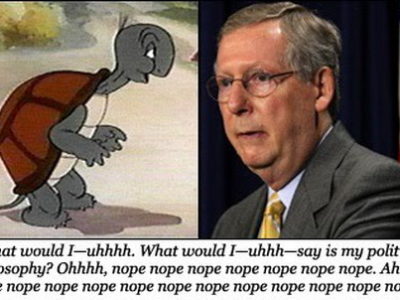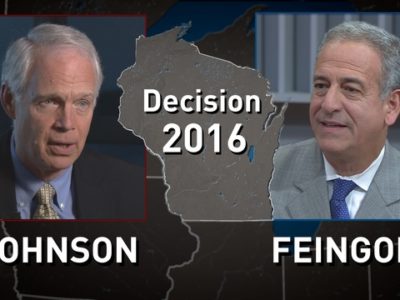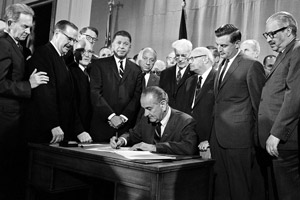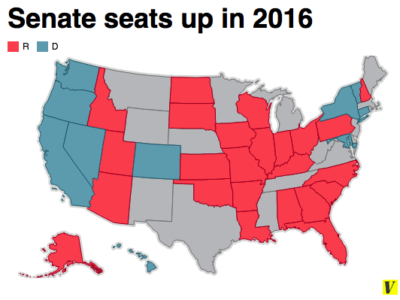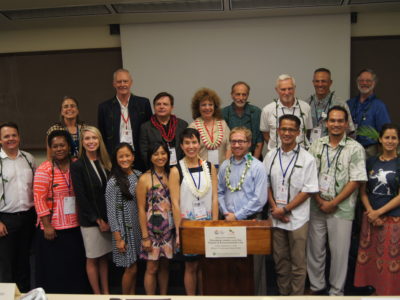The Clean Water Act, Federalism, Big Money and the California Supreme Court
Ill-considered Supreme Court Decision Threatens California's Administration of Clean Water Act Permit Program
The California Supreme Court recently issued a little-noticed decision on a seemingly arcane state public finance issue that could well wind up having a dramatic, negative effect on California's continued ability to administer the federal Clean Water Act's permit program in the Golden State. The case is Department of Finance v. Commission on State Mandates. In that decision, a bare 4-3 majority of the Supreme Court held that the costs associated with conditions im...
CONTINUE READINGCan Women’s Land Rights Combat Climate Change?
Suggestive Links Between Gender Equity and Sustainability
I suppose that the holy grail of environmentalism, and environmental scholarship, is integrating equity concerns with global priorities. The environmental justice movement has sought to do this, sometimes with success and sometimes less so. Now Jennifer Duncan of Landesa, one of the most innovative think tanks focusing on land rights and the Global South, thinks that drawing a new connection is necessary: Securing women’s rights to land is one approach that can...
CONTINUE READINGWill We Get a Ninth Supreme Court Justice?
Not if Clinton Wins the President and the GOP Maintains Control of the Senate
Dan's march through the Senate, and his fine post today on Wisconsin, might even be more significant than says. He writes: A President Trump with a Republican Senate could do a lot to carry through on his pledge to dismantle EPA’s powers, whereas a President Clinton would receive valuable support from a Democratic Senate. If Clinton wins, Democratic control of the Senate would increase her leverage in dealing with the House, and would allow her a much freer hand w...
CONTINUE READINGBattle For the Senate: Wisconsin
The candidates' views on energy and environment are diametrically opposed.
Wisconsin is first up in a series of posts on key Senate races. My goal is to describe the candidates' views on key policy issues, not to make a case for either side. The Wisconsin race is a rematch between the incumbent Ron Johnson and the previous incumbent, Russ Feingold, whom he had defeated in 2010. Their lifetime ratings from the League of Conservation Voters tells the story about their views: Johnson's rating is 5%, Feingold's is 95%. Johnson sometimes de...
CONTINUE READINGGreat environmental law scholarship
Some of the best articles in the field from 2014-15
Some of our readers may be interested in what is happening in environmental legal scholarship. So I thought I’d post about the Land Use & Environment Law Review, which is Thomson Reuters/West Publishing’s peer-selected annual compendium of significant legal scholarship in land use and environmental law. About sixty reviewers (made up of environmental law professors) considered the full range of articles published in law reviews on environmental law in 2014-20...
CONTINUE READINGGary Johnson’s Hasty Retreat
He was for a carbon tax. For a few days. Until he was against it.
I posted a few weeks about Gary Johnson's embrace of a carbon fee, which seemed like an appealing sign of new ideas. Apparently, however, stale ideas are more politically salable. As it turns out, under pressure from horrified conservatives, Johnson waved the white flag and surrendered only a few days later. Here's his explanation: "If any of you heard me say I support a carbon tax...Look, I haven't raised a penny of taxes in my political career and neither has ...
CONTINUE READINGWhat is the Price of Equality?
Do Local Land Use Regulations Violate the Fair Housing Act?
One of the great things about studying land use is that it comprises so much of modern life. That creates some disciplinary problems: one UCLAW colleague who shall remain nameless (but comes from Pennsylvania) told me several years ago that he didn't think land use was part of environmental law at all. (He has since recanted after asking me, while he was teaching the Environmental Law Clinic what is a "conditional use permit." Hmph.). But it is surely no accident tha...
CONTINUE READINGThe Battle for the Senate: Eight Key States
The outcome of these races will have a major impact on environmental policy.
As important as the presidential election is, the presidency isn’t the only important federal office at stake. This year, an unusual number of Senate races could go either way, and control of the Senate hangs in the balance. The Democrats need to pick up 4 seats (if Kaine is VP) or 5 (if Pence is VP). Over the next month, I will post information about the environment and energy views of the candidates in critical Senate races. In the interest of objectivity,...
CONTINUE READINGHow to Hedge Your Portfolio Against a Possible Trump Victory
Place your financial bets on having LESS renewable energy and MORE climate change.
If you’re worried about the economic impact of a Trump victory, you should be thinking of hedging your risk. One hedging strategy is to place a bet on climate change. By undoing Obama’s climate regulations and scuttling the Paris Agreement, Trump will set back climate policy, here and around the world by years, maybe decades, He’ll undermine renewable energy, especially wind power, which he hates. Even if a later president manages to pick up the pieces, a lot of e...
CONTINUE READINGThe Future of Environmental Law?
Thoughts from the IUCN World Conservation Congress in Hawai'i
I am writing this weekend from a sunny spot in the Pacific, from the IUCN World Conservation Congress in Honolulu. For the uninitiated, the IUCN—International Union for Conservation of Nature and Natural Resources—is a global union of governments and non-governmental organizations (including over 1300 member institutions, organizations, and countries worldwide) focused on the conservation of nature. The IUCN holds its worldwide meeting, the World Conservation Congres...
CONTINUE READING





